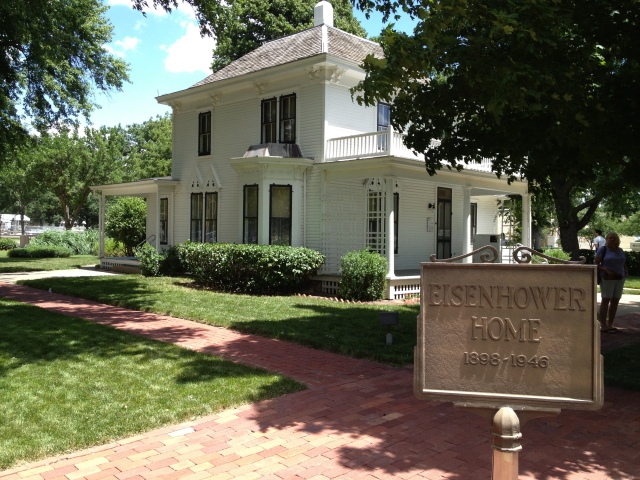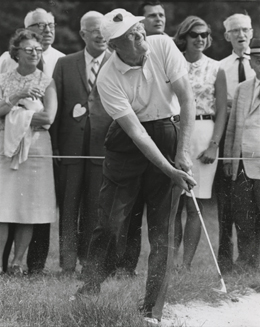Saturday afternoon we arrived at the Eisenhower Library in Abilene, Kansas. This is such a peaceful about beautiful smaller town about 3 hours east of Kansas City.
“Dwight David Eisenhower was born the year the US census pronounced the frontier closed and died the year man walked on the moon. In between those milestones he planned and led the greatest amphibious military assault in history and waged eight years of peace and prosperity as President. Yet on reflection of this eventful life declared: “The proudest thing I can claim is that I am from Abilene.”” From the Library
After our 34th President of the United States was born October 14th, 1890, the family 
His military career started at Ft Sam Houston with several domestic assignments in 1922 he went to Panama and met General Fox Connor who took him under his wing, helping hm to get into the Command and General Staff School at Fort Leavenworth, Kansas. Eisenhower graduated first in the 1926 class of 245 officers. After assignments in the War Department (1929-35), he accompanied Gen. Douglas MacArthur to the Philippines as an assistant military advisor; his principal duty was helping MacArthur and his staff develop a viable Filipino Army.
Following the Japanese bombing of Pearl Harbor on December 7, 1941, Eisenhower was 
General Eisenhower served as Chief of Staff of the United States Army from November 1945 until February 1948. He resigned from the to serve as president of Columbia University. In 1950, at President Truman’s request Eisenhower took a leave of absence from Columbia to command the North Atlantic Treaty Organization. As Supreme Allied Commander, Europe until June 1, 1952 when he returned home.
It took a strong political ability to work with all the various political and military individuals during the European portion of World War Two and those first years of NATO, which was highly noted by both the Democratic and Republican parties looking forward to the coming 1952 presidential election, both parties wanted Eisenhower. He picked the Republican party and went on to defeat Adlai 
1. He Kept America at Peace.
Eisenhower was confronted with major Cold War crises every year he was in office: Korea, Vietnam, Formosa, Suez, Hungary, Berlin, and the U-2. While more than once America seemed on the brink of war and those around him clamored to drop the Bomb, Eisenhower always kept a level head. He dealt calmly and rationally with each situation, always finding a solution that avoided war without diminishing America’s prestige.
2. He Ended the Korean War.
He alone had the prestige to persuade Americans to accept a negotiated peace and convince the Chinese that failure to reach an agreement would lead to dire consequences. Eisenhower considered this to be his greatest presidential accomplishment.
3. He Balanced the Budget, Not Just Once, But Three Times.
Despite much pressure to do otherwise, he also refused to cut taxes and raise defense spending. His fiscal policy contributed to the prosperity of the 1950’s.
4. He Sponsored and Signed the Federal Aid Highway Act of 1956.
This gave birth to America’s interstate highway system. Eisenhower worked hard to get the bill passed and it was his favorite piece of legislation.
5. He Sponsored and Signed the Civil Rights Bill of 1957.
This was the first civil rights bill since Reconstruction. Much to Eisenhower’s dismay, Congress amended the bill and critically weakened its effectiveness.
He set a relaxed lifestyle for the country. He enjoyed an ocassional round of golf, some 800 while in the White House – averaging 2 rounds a week. You have to smile about the change in times with complaints about the current president playing golf.
After leaving office, Eisenhower retired to his home and farm in Gettysburg, PA. He spent the winter months in Palm Springs California and a few months a year at the Eisenhower Cottage at Augusta National Golf Club in Georgia.
Ike is warmly remembered for his ability to get cooperation between the two parties in Washington. As we walked through the library gift shop after the visit we were reminded of the longing for those old days of cooperation when there was a shirt with the slogin on it” Truman and Eisenhower 2012″.
Another interesting and educational afternoon.





